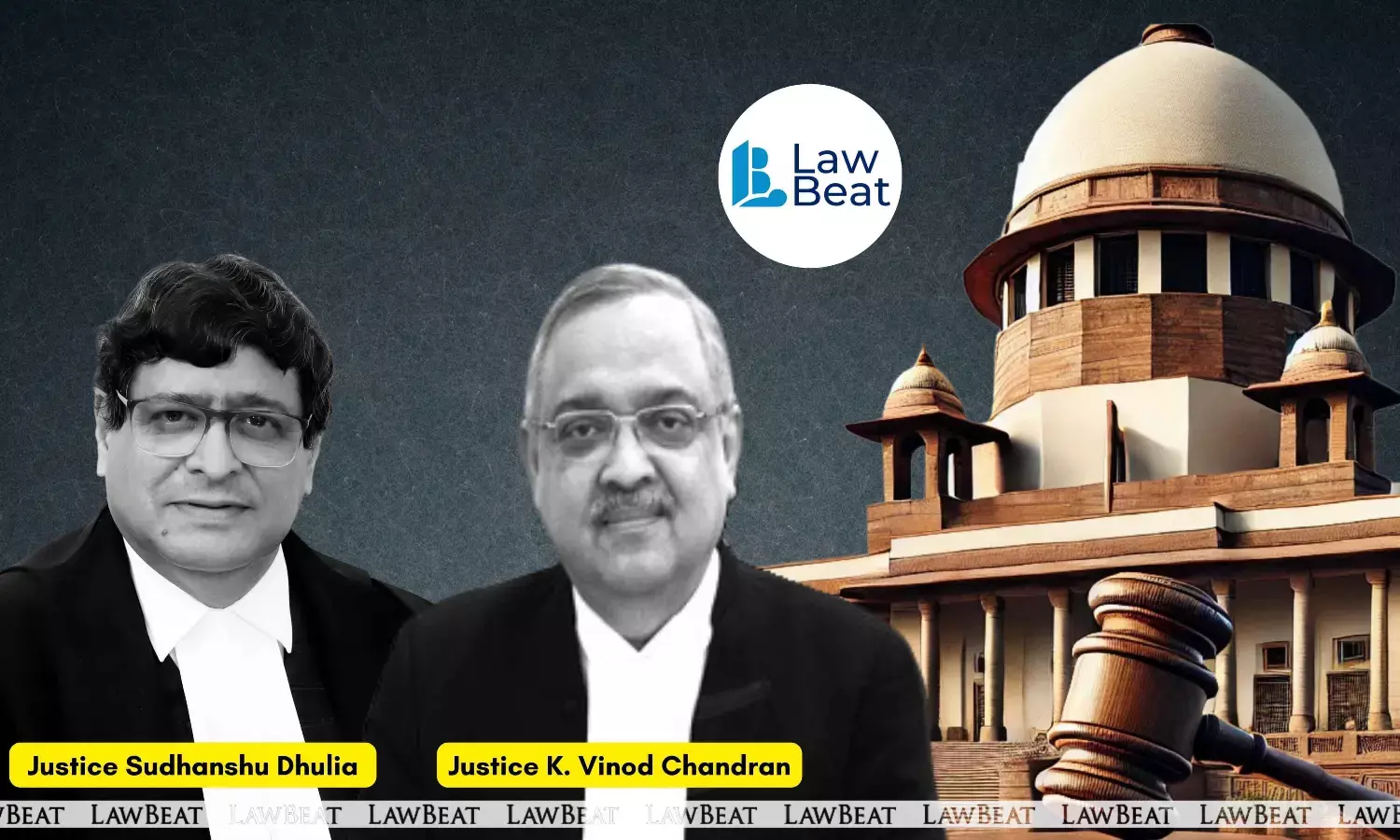'Prosecution story full of holes,' SC acquits two men in case of raping two married women

The Supreme Court on April 30, 2025, acquitted two men accused of raping two married women, citing its inability to rely on the victims’ oral testimonies—although they spoke in tandem about the crime.
Court noted that the story put up by the prosecution, as disclosed by them, was full of holes and raised a grave suspicion, which qualified as reasonable doubt.
"Looking at the totality of the circumstances and the entire story as narrated by the victims, we find difficulty in accepting their testimony to be one having sterling quality. We cannot also say that the story as narrated by the victims inspires confidence. Looking for assurance, we find the entire narration to be unbelievable and not substantiated on its finer details," a bench of Justices Sudhanshu Dhulia and K Vinod Chandran said.
The court cited the judgment in State of Punjab Vs Gurmit Singh (1996), which held that even without any corroboration, if the evidence of the prosecutrix inspires confidence, it can be relied on and can also be the sole ground for conviction. However, if it is difficult to place implicit reliance on the testimony of the prosecutrix, then the court has to look for evidence to lend assurance to her testimony which would be short of corroboration required in the case.
The testimony of the prosecutrix must be appreciated in the background of the entire case, was the finding, the bench pointed out.
The bench also relied upon Raju Vs State of M.P. (2008), in which the court also cautioned that while rape causes the greatest distress and humiliation, a false allegation of rape also can cause equal distress, humiliation and damage to the accused as well.
The court should be equally careful in protecting the accused from a false implication. While applying the broad principle that an injured witness, whose presence cannot be doubted, as she would ordinarily not lie, still there is no presumption or any basis for assuming that the statement of such a witness is always correct or without any embellishments, the bench pointed out.
Appellant Keshav and another were held guilty by the trial court for committing rape upon the two women. Two other men were convicted of the charge of abduction only. The Bombay High Court upheld the conviction of the appellants but acquitted two others.
According to the prosecution, two women, wives of siblings, quarreled with their mother-in-law and left their matrimonial home, on the pretext of answering the call of nature. The two-year-old son of one of them was also taken with them. Intending to go to Kurla, they boarded a tempo. It was alleged the accused including the one who was driving the tempo took the women to a deserted field where they threatened them with a knife and committed rape upon them.
It was alleged after raping the women, the accused dropped them at Gangakhed from where they proceeded to Parbhani where they stayed for about 15 days. The victims left their matrimonial home on June 04, 2000 and the FIR was registered on June 20, 2000.
The court noted that the mother-in-law or their husbands were not examined before court to substantiate that they had left their marital home.
It is very pertinent that the two-year old boy was with the victims at the time when the crime was alleged to have been committed, but there is nothing stated about his whereabouts when the two accused were simultaneously but separately forcefully having sexual intercourse with the victims, the bench said.
The bench also pointed out that the two women identified the accused, and there was also a test identification parade carried out.
However, their story of having been taken past Kurla and the rape in the deserted field does not inspire confidence. Likewise, the subsequent stay in Parbhani, that too for 15 days, is full of inconsistencies and police also did not carry out any investigation as to the place at which the victims stayed along with the child of two years, the bench said.
The court also looked at the evidence of the doctor, who examined the victims, and deposed that he saw no evidence of forceful sexual intercourse.
"We are conscious of the fact that the medical examination was done after 15 days of the alleged crime. But the doctor deposes that if there was forceful sexual intercourse, that too repeated, as evident from the testimony, there would be some injuries which may not be detected after about one or one and a half months. The medical examination was within that period," the bench said.
The court allowed the appeal and acquitted the accused. Court set aside the judgment of the high court of July 02, 2024 and the trial court of July 02, 2003.
Case Title: Keshav S/o Laxman Rupnar & Anr Vs State of Maharashtra
Download judgment here


